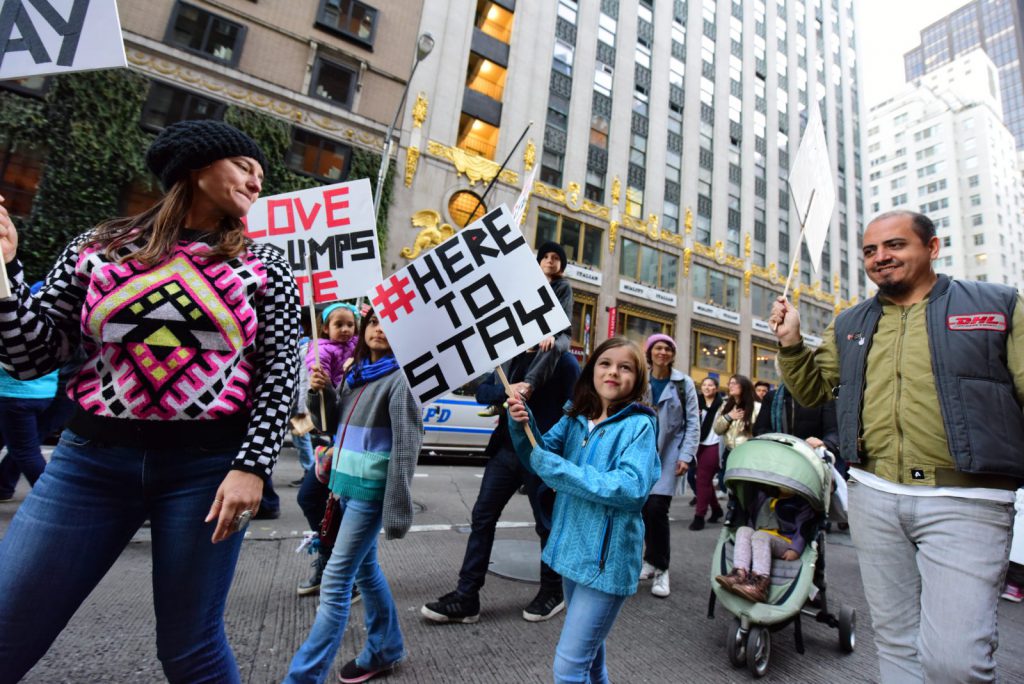
Published September 4, 2017
The furor over the fate of the “Deferred Action for Childhood Arrivals” or DACA program offers further evidence, as if we needed it, that Washington has lost the knack for spotting opportunities for governing.
Politico reports that President Trump intends very soon to announce that he’ll be ending DACA—the constitutionally dubious Obama-era executive action that gave work permits (and therefore pseudo-legal status and a path to permanence) to illegal immigrants who were brought to the United States as children and have grown up here. Apparently, though, the president will announce a six-month delay in the implementation of this decision, to allow Congress some time to act.
This news is being interpreted by many champions of the immigrants in question (they are often called “dreamers,” even though, unlike almost all other immigrants, they did not come here in pursuit of any dream of their own but were brought by their parents) as further evidence of Trump’s malevolence and cold-heartedness. But this decision, and particularly the six-month delay, actually strikes me as evidence of the president’s half-heartedness about this subject, and maybe even a desire to avoid deporting people whose presence here illegally is plainly not their fault and who stand to contribute a lot to our country.
The question of DACA and the “dreamers” is generally being treated as a kind of heightened and exaggerated form of the broader immigration debate. But I think it’s actually an exception to the rule of that debate. In a functional politics, the situation Trump is responding to, and even the halting way he is responding to it, would be treated as an obvious opportunity for targeted progress by all sides, not another mess.
It’s an opportunity because this controversy presents an unusual facet of the enormously contentious public debate over immigration: There is some real softness on this particular question (the ultimate status of the “dreamers,” not the constitutionality of Obama’s power grab) among a fair number of immigration restrictionists, including President Trump himself. But at the same time this is a particularly sensitive and important question for many immigration permissivists, including leading Democrats and some leading Republicans. So the restrictionists are willing to compromise and the permissivists are willing to pay a price. That’s a huge opening for a deal—an opening to trade some legal status for the “dreamers” for some modest but meaningful concession from the permissivists to the restrictionists.
What kind of concession? It would need to offer a mirror image of the concession the restrictionists would be making, so it would need to be something the permissivists oppose in principle but could live with in practice but that at the same time most restrictionists consider very important as a substantive matter. The natural candidate is funding for the border wall President Trump wants. A deal like that would also resolve the looming budget impasse, which nearly everyone in Congress wants to avoid but which the president seems intent on marching into (and looks reasonably likely to fumble in his way).
The mechanism for such a deal could be straightforward. The House already has wall funding included in its appropriations language for the coming fiscal year. It could add to the same bill something like the Curbelo-Tillis language (giving legal status to “dreamers” who meet certain conditions) and put it to a vote.
Because the two sides of the immigration debate value the wall question and the “dreamers” question very differently, a deal could actually have real appeal to both sides while it keeps the government open. For those drawn to the approach to immigration that Trump ran on last year (presumably including Trump himself), such a deal would neutralize the opposition’s strongest political weapon, would shift the balance of who’s taking hostages in the budget fight and who’s offering a compromise solution, and would also pressure Democrats to help Trump keep a key promise that could reduce illegal border crossings—all in return for a policy change that many restrictionists consider justifiable. For immigration permissivists, it would formalize DACA and secure it with bipartisan backing while (for the Democrats among them) forcing Republicans to effectively legitimize an Obama action they opposed, and all in return for funding a construction project they detest for basically aesthetic and symbolic reasons.
A similar case, without the budget impasse angle, could be made for trading some status for the “dreamers” for universal e-verify, for instance. I’d prefer that as a substantive matter although its political appeal (and its likely appeal to Trump) may not be as great. Other concessions are also easily imaginable.
In fact, the fight over the “dreamers” presents some pretty obvious opportunities for a deal. But can Washington still make deals these days? And can the author of The Art of the Deal?
Yuval Levin is the Hertog Fellow at the Ethics and Public Policy Center.





